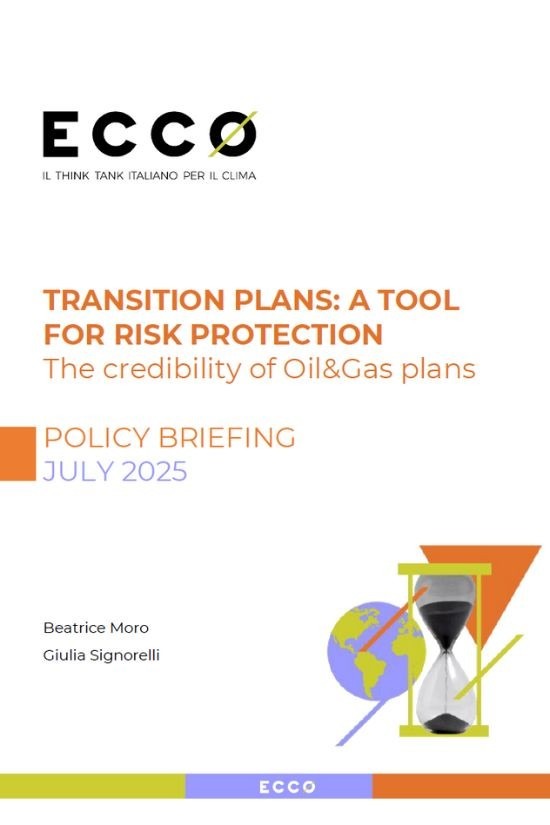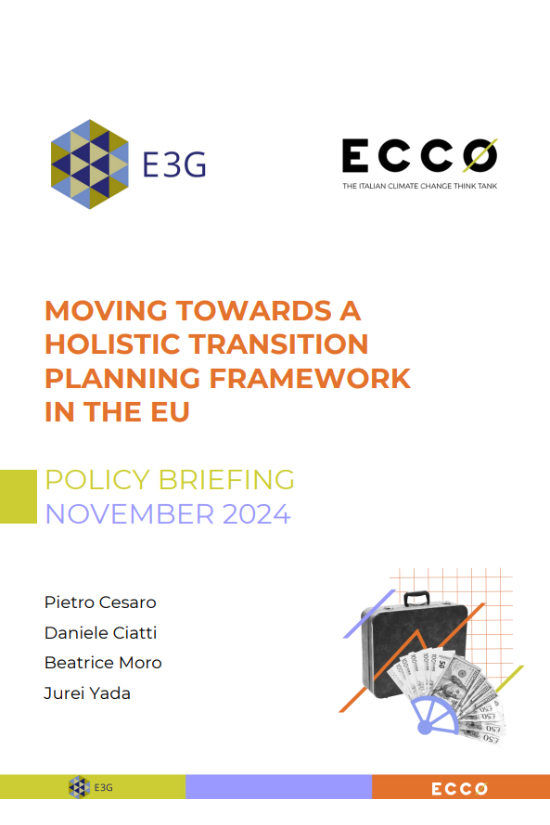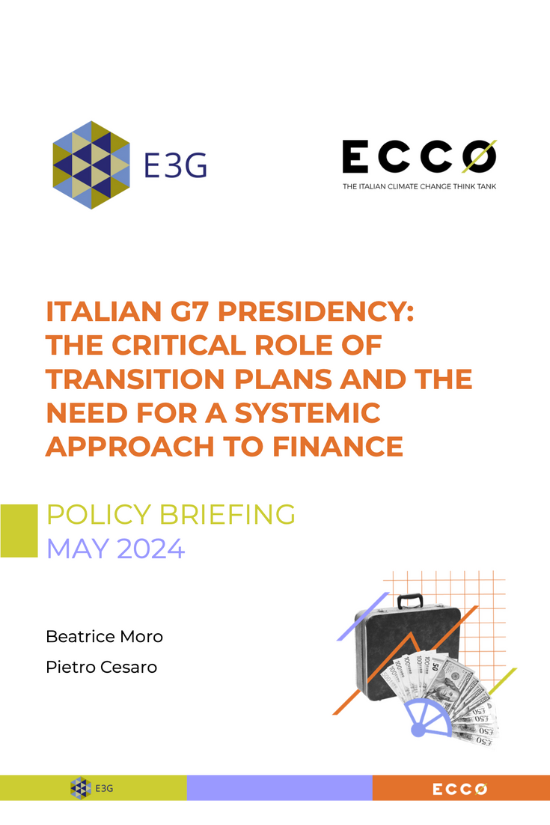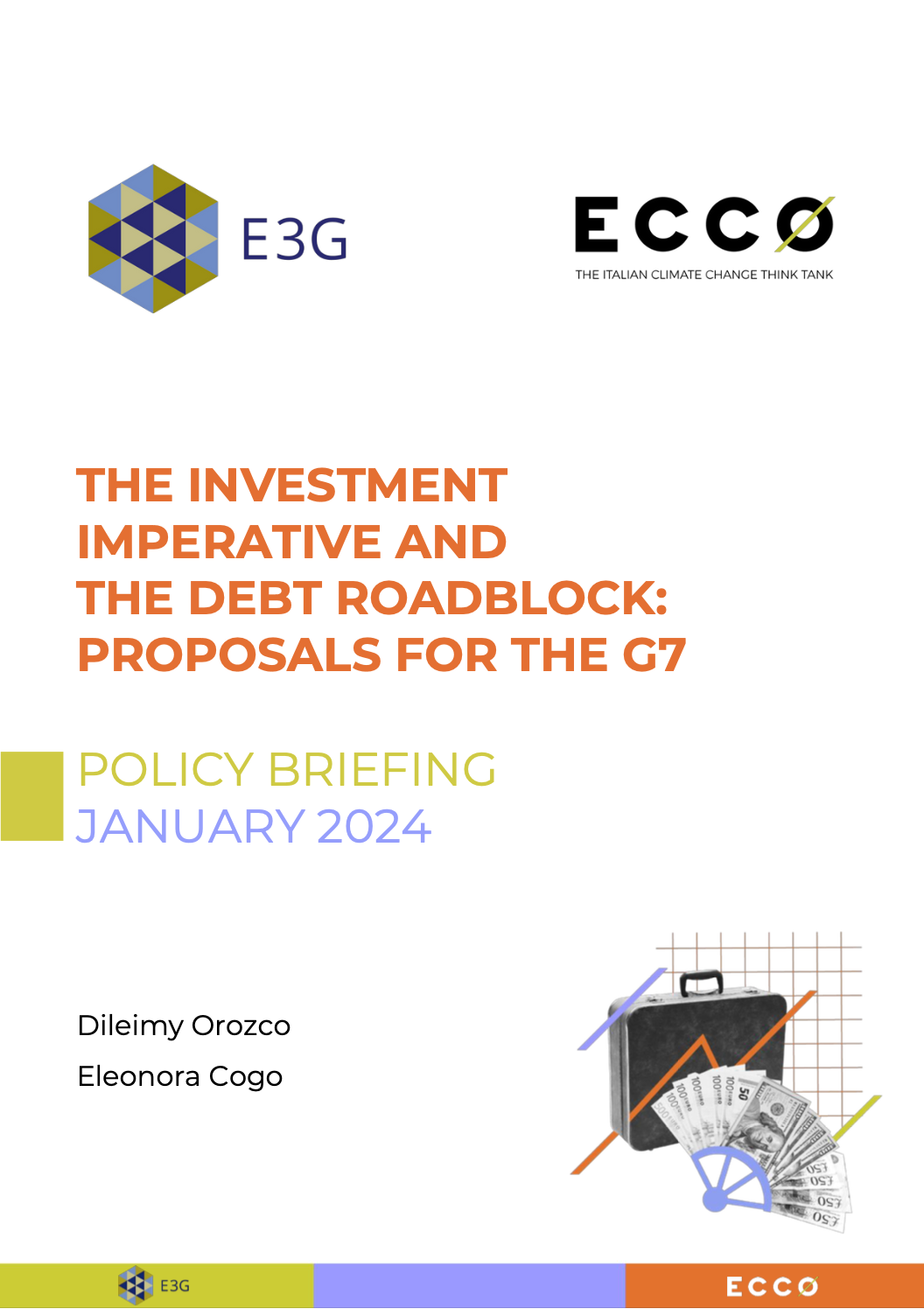Publications
Search
Filters
Authors
/ Alexandra Scott
/ Andrea Ghianda
/ Annalisa Perteghella
/ Beatrice Moro
/ Carolina Bedocchi
/ Caterina Molinari
/ Chiara Di Mambro
/ Chiara Mariotti
/ Chloe Pagliaro
/ Costanza Scano
/ Davide Panzeri
/ ECCO think thank
/ Eleonora Cogo
/ Federico Tassan-Viol
/ Filomena Annunziata
/ Francesca Andreolli
/ Francesca Bellisai
/ Gabriele Cassetti
/ Giovanni D'Amico
/ Giulia Colafrancesco
/ Giulia Giordano
/ Giulia Novati
/ Giulia Signorelli
/ Ilaria Mazzocco
/ Lorena Stella Martini
/ Luca Bergamaschi
/ Luca Iacoboni
/ Mario Noera
/ Marta Lovisolo
/ Massimiliano Bienati
/ Matteo Leonardi
/ Matteo Viola
/ Michele Governatori
/ Nicolas Drago
The Transition Plans published by Italy’s leading oil and gas companies exhibit significant shortcomings, particularly in the quantitative analysis of risks, the planned reduction in hydrocarbon production, and transparency around geographic and regulatory dependencies. For these plans to be credible, they must go beyond simple reporting, incorporating rigorous analysis and a clear governance strategy that reduces uncertainty and decisively channels investment toward truly sustainable solutions.
This briefing, authored by ECCO and E3G, takes stock of the EU transition planning framework initiatives and calls for a systemic approach – moving towards a simple and holistic transition planning framework that aligns various governance systems and policy tools within the EU, while ensuring consistency with international climate goals such as the Paris Agreement.
G7 finance and climate tracks should align their strategy, find a common position and support a systemic approach to defining and financing national transition plans. Such a systemic approach developed by G7 is critical to give confidence, build trust and inform next set of finance and climate decisions at COP29 and COP30 on the New Collective Quantified Goal on Climate Finance (NCQG) and the Nationally Determined Contributions (NDCs).
Given the imperative to mobilize private investment at the scale required to address climate change, the effective deployment of funding, policies, and frameworks becomes paramount. In this context, it is imperative to place Transition Plans (TPs) at the heart of the G7 finance agenda as primary tools to re-orient and re-design private and public choices towards resilient and sustainable economic systems.
This policy briefing, prepared by ECCO and E3G, examines the relationship between debt and climate at a pivotal moment for transforming the international financial architecture and for ensuring finance flows towards climate growth opportunities. Italy can play a key role in shaping a more resilient and sustainable future for Africa through both its G7 Presidency and the Mattei Plan.
The Transition Plans published by Italy’s leading oil and gas companies exhibit significant shortcomings, particularly in the quantitative analysis of risks, the planned reduction in hydrocarbon production, and transparency around geographic and regulatory dependencies. For these plans to be credible, they must go beyond simple reporting, incorporating rigorous analysis and a clear governance strategy that reduces uncertainty and decisively channels investment toward truly sustainable solutions.
This briefing, authored by ECCO and E3G, takes stock of the EU transition planning framework initiatives and calls for a systemic approach – moving towards a simple and holistic transition planning framework that aligns various governance systems and policy tools within the EU, while ensuring consistency with international climate goals such as the Paris Agreement.
G7 finance and climate tracks should align their strategy, find a common position and support a systemic approach to defining and financing national transition plans. Such a systemic approach developed by G7 is critical to give confidence, build trust and inform next set of finance and climate decisions at COP29 and COP30 on the New Collective Quantified Goal on Climate Finance (NCQG) and the Nationally Determined Contributions (NDCs).
Given the imperative to mobilize private investment at the scale required to address climate change, the effective deployment of funding, policies, and frameworks becomes paramount. In this context, it is imperative to place Transition Plans (TPs) at the heart of the G7 finance agenda as primary tools to re-orient and re-design private and public choices towards resilient and sustainable economic systems.
This policy briefing, prepared by ECCO and E3G, examines the relationship between debt and climate at a pivotal moment for transforming the international financial architecture and for ensuring finance flows towards climate growth opportunities. Italy can play a key role in shaping a more resilient and sustainable future for Africa through both its G7 Presidency and the Mattei Plan.




